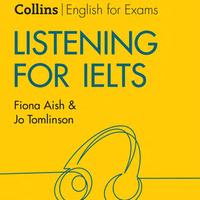7- 53
Tutor: Good morning Phil, Jackie. I hope your project is going well.
Phil: Morning, Mr Jackson.
Jakie: Hi Mr Jackson. Well, we've made a start on analysing the different forms of renewable energy, but, unfortunately, we don't agree on some points.
T: OK. Why don't we talk about it?
PH: Well, Jackie believes that all forms of renewable energy are beneficial economically, whereas I doubt that that's true for all forms.
T: Such as?
PH: Such as wind, wave and solar because they aren't always constant and so they become less reliable.
T: That's a valid point, but I don't think that's a large enough factor to disregard it completely.
J: Exactly! That's what I said.
PH: However, another drawback is that they're generally very expensive to produce.
T: Yes, you're right. And that is a concern when evaluating their usefulness in the future.
J: I agree with you to a point, but it's likely that the cost will come down. I read a report in the Journal of Environmental Science that estimated the cost would fall by twenty percent over the next ten years, which is significant, isn't it?
T: Absolutely, Jackie. But you need to think about how difficult it is to predict the cost of non-traditional energy sources before you believe the report. Remember: in your project l want to see evidence of critical analysis. Make sure you've analysed all the information rather than just accepting the information that you agree with. Also, it's important that you demonstrate that you have read widely around the subiect.
J: I know. It's just that I'm not convinced it's going to continue to be that expensive, especially if there's a demand from consumers.
PH: Well, what about if we analyse the costing process as part of our project?
T: That's an excellent idea, Phil. OK, so let's imagine that we want to forecast the cost of producing solar energy. How could we do that, Jackie?
J: Um, well, I think we'd have to start by working out how many hours of daylight there are in the UK per year.
PH: The Meteorological Office would have data on that.
J: Then estimate the number of hours of sun to get a rough total.
PH: And then I suppose we'd need to work out how much it would cost to supply the average home with solar power, and then work from that to get a number for the whole country.
T: Good, and don't forget the price of power conversion stations - this will have a significant impact on overall expenditure. And there's one more factor you haven't taken into account yet, regarding the consumers.
J: Um - whether they would change from traditional to renewable energy?
T: No, but think about what might make them change?
J: Oh, yes. How much they'd be willing to pay.
T: Exactly. Well done.

